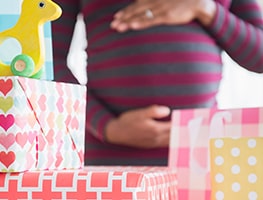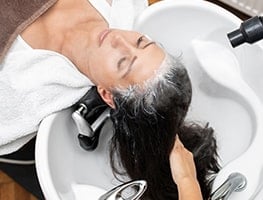Teresa first felt the lump in her breast while she was breastfeeding her 4-month-old daughter, Briony. Initially, she dismissed it as being a cyst, caused by a thickened milk duct. However, when she mentioned her concerns at Mother’s Group the following week, the advice was the unanimous: “Get it checked at the doctor.” While her doctor thought it might be just a blocked milk duct she referred her for an ultrasound anyway. As a result, Teresa became one of the 8 000 South African women diagnosed with breast cancer this year. Fortunately for Teresa, it was detected early, and she is currently undergoing treatment for it.
It is easy to neglect breast self-examinations during pregnancy and breastfeeding. The huge changes to your body and, often, lack of sleep make it hard to continue doing so. There are also many different lumps in your breast that can occur during this time, including blocked ducts and lipomas (benign overgrowths of fat tissue).
For women that are breastfeeding, it can be difficult to know if lumps in the breast are harmless or sinister, so rather get it checked. The only good breast lump is an investigated breast lump. Usually your GP will take what is known as the triple test approach, which includes a breast exam and taking your personal history. This will then be followed up with an ultrasound and a biopsy if required.
If the diagnosis is one of breast cancer it is important to seek support. CANSA, the Cancer Association of South Africa, will be able to provide you with helpful links and resources at a difficult time.
Sharing this information with your children can be very challenging, especially if they are very young. There are books especially designed for them that can be very helpful to read with them. It will allow them to access this information at a level they can understand.
If you have a friend, who is diagnosed with breast cancer, it is extremely useful to ensure you are able to provide practical support if needed. Offering to help out with shopping, the school run or keeping your friend’s spirits up is important to their treatment and recovery. You can also be an advocate for your friend, by seeking out services for them to use as well.
The crucial thing is to talk to your doctor if you find any lumps you are unsure about. It is important to be pro-active about self-breast examination and seek a second opinion if necessary.
For further information:
























